UW Medicine is a leader in research and clinical care for those struggling with addiction. We bring together experts with decades of experience across multiple disciplines to accelerate novel therapeutics in addiction psychiatry that could have a huge impact on public health.
Center Leadership
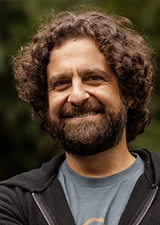
Nathan Sackett, MD, MS
Nathan Sackett, MD, MS, (he/him) is the Director of the Center for Novel Therapeutics in Addiction Psychiatry and Acting Assistant Professor in the University of Washington Department of Psychiatry & Behavioral Sciences. His focus is on the intersection between substance use and psychiatric disorders and the use of psychedelics to treat substance use disorders with a particular interest in how psychedelics can augment the psychotherapeutic process and facilitate behavioral change.
Center Staff
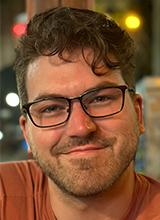
Elan Green, BS
Elan Green (he/him) is the Research Coordinator for the Center for Novel Therapeutics in Addiction Psychiatry. He earned his Bachelor of Science in Psychology from the University of Washington, where he is also pursuing a Master’s degree in Clinical Social Work. Elan brings a wealth of experience in harm reduction and addiction research. His professional focus is on the integration of psychedelic medicine with treatments for addiction and PTSD.

Christina L. Sargent, BS
Christina (she/her) is the Lead Research Project Coordinator for the Center for Novel Therapeutics in Addiction Psychiatry. She is simultaneously pursuing a Master of Pharmacy at the University of Wisconsin-Madison in their Psychoactive Pharmaceutical Investigation program. Christina has in-depth, hands-on experience overseeing and executing clinical trials. She is passionate about conducting high quality clinical research and making psychiatric care equitable and accessible. Her undergraduate degree is in Biology & Psychology from Seattle University and her areas of interest are the neurobiological mechanisms of addiction, stress, trauma, and psychedelic medicine. Outside of being a part of cool science, the best part of her job is getting to build meaningful connections with patients.

Jordan Royal, MSW, LICSW
Jordan Royal, MSW, LICSW (she/her) is the Clinical Supervisor/Lead Mental Health Practitioner for the Center for Novel Therapeutics in Addiction Psychiatry. Jordan started her professional career as a social worker and trainer in the child welfare field, then worked as a clinical social worker and trainer at the Harborview Abuse and Trauma Center for 14 years. She is a nationally certified trainer and consultant of Cognitive Processing Therapy, an evidence-based, cognitive-behavioral treatment for PTSD. In addition, Jordan was a clinician on the UW Alcohol and PTSD Study that provided Relapse Prevention or Cognitive Processing Therapy to adults with PTSD and Alcohol Use Disorder. After completing a Bachelor of Arts Degree in Psychology from Whitman College, she earned a Master of Social Work Degree from UW. Jordan is passionate about providing effective treatments to people who have experienced trauma and are struggling with substance use disorders.
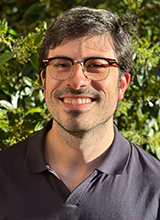
Joseph La Torre, PhD, MTS
Joseph La Torre, PhD, MTS, (he/they) is the Lead Research Psychologist of the Center for Novel Therapeutics in Addiction Psychiatry. He specializes in the development of novel psychedelic clinical research protocols for understudied indications with a focus on psychotic conditions, bipolar disorder, and racial trauma. He also explores the intersection between psychedelic experiences and spiritual/mystical experiences, ethnobotany, and shamanism. Dr. La Torre holds a Masters in Theological Studies in Buddhist Studies from Harvard University, and a Ph.D. in Psychology from the University of Ottawa. He speaks Italian, Mandarin Chinese, and German.

Crystal Lederhos Smith, PhD
Crystal Lederhos Smith, PhD is the Statistician for the Center for Novel Therapeutics in Addiction Psychiatry. She is an Assistant Professor at the Washington State University (WSU) Elson S. Floyd College of Medicine and in the WSU Prevention Science program. She leads the Laboratory for Innovative Therapeutics (LIT) and is program director for the Analytics and PsychoPharmacology Laboratory. LIT utilizes advanced quantitative and multiple forms of qualitative research methods to target substance use disorder treatment optimization, therapeutic use of novel substances, and precision medicine interventions.

Andie Uomoto, MPA
Andie Uomoto (she/her) is the Center Manager for the Center for Novel Therapeutics in Addiction Psychiatry. She received a Master’s in Public Administration from the University of Washington’s Evans School of Public Policy and Governance. She has significant experience in implementing research and training projects, collaborations and initiatives.
Community Advisory Board

Galyn Burke, LMFT, LMHC
Galyn Burke, LMFT, LMHC, is a trauma therapist, integrating cognitive, somatic, and energetic modalities with indigenous wisdom (tailored to the needs of western clients, with permission from the lineage holders). Galyn is a graduate of Brown University and holds a Master’s Degree in Counseling from Palo Alto University, with extensive post-graduate training in emerging trauma therapies, including Brainspotting, MDMA Assisted Psychotherapy (via MAPS ) and Ketamine Assisted Psychotherapy (via Polaris Insights Center).
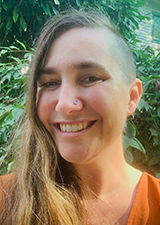
Darcy Constans, MD
Darcy Constans, MD, is a family medicine physician practicing in Seattle. She has a specific interest in mindfulness, addiction medicine, mental health and psychedelic medicine.
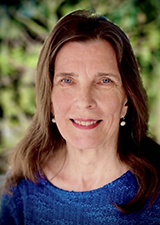
Karin Gagnon
Karin has conducted educational and transformational programs throughout the U.S., India, and Europe for more than three decades. She is the co-founder of The WISDOM Council (Women in Service Deepening Our Mission), Program Director for Experiential Training/Learning at SNaP lab, (Social Neuroscience and Psychopathology) at the Oregon Health Science University, and contributes as an advisor and mentor to a number of other non-profit organizations in her community.
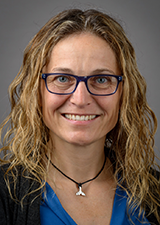
Pamela Kryskow, MD
Dr. Pamela Kryskow is a Canadian MD, researcher, therapist and academic. She is the medical lead for the Roots To Thrive Psychedelic Assisted Therapy Non Profit, a professor in the Vancouver Island University Psychedelic Assisted Therapy and a founding board member of the Psychedelic Association of Canada.
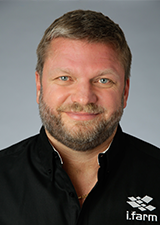
Will MacHugh
Will MacHugh is a farmer from Albany, Oregon and Eltopia, Washington. His interest in mental health comes from an interest in building better tools for those involved in addiction treatments.
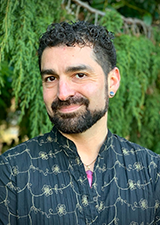
Ian T. Pocock, LICSW
Ian T. Pocock, LICSW, is a third-wave mindfulness therapist in private practice, offering individual psychotherapy and ketamine-assisted therapy. Ian’s background and training is in the treatment and study of chemical dependency, serious mental illness, trauma-informed care, and psychedelics.
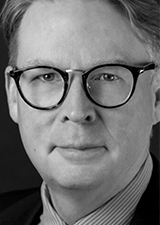
John Rapp, JD
John Rapp, JD, is a practicing trial lawyer, ethics expert, graduate instructor, seminar producer, and plant medicine activist. He is active in his entheist Church, the Sacred Garden Community.
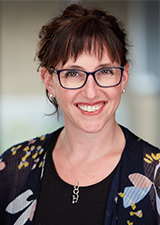
Erica Siegal, LCSW
Erica Siegal, LCSW, is a psychedelic-assisted psychotherapist, harm reduction educator, and community organizer based in Southern California. She has spent the past decade providing mental health crisis support and harm reduction outreach to transformational festivals and gatherings throughout the United States and the world, including Costa Rica, Mexico, and Italy. She founded NEST Harm Reduction in 2019 to provide harm reduction-based comprehensive care to individuals, couples and communities.
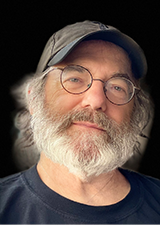
Paul Stamets
Paul Stamets is a speaker, author, mycologist, medical researcher and entrepreneur, is considered an intellectual and industry leader in fungi: habitat, medicinal use, and production. He is the author of seven books, an invention ambassador for the American Association for the Advancement of Science (AAAS) and was inducted into The Explorer’s Club in 2020. He has received numerous awards, including the National Mycologist Award (2013) from the North American Mycological Association (NAMA), the Gordon and Tina Wasson Award (2015) from the Mycological Society of America (MSA), and The Disruptor Award from Nextmed (2023). A new psilocybin species has been recently named after him, Psilocybe stametsii. He was featured as a guide in Louie Schwartzberg’s 2019 documentary Fantastic Fungi and his work with mycelium became a central theme in the new Star Trek Discovery series on CBS that includes an astromycologist character named Lt. Commander Paul Stamets.
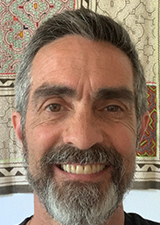
Todd Youngs
Todd has been in long-term recovery from addiction and alcoholism since 2009. He works intensively with others to help them achieve a life of satisfying and meaningful sobriety. His approach is eclectic and holistic. It draws from a diversity of modalities including 12 Steps, CBT, MI, and Mindfulness practice to deeply address the bio/psycho/social/spiritual aspects of addictive disorders. Todd has worked extensively with Ayahuasca for over 13 years within a variety of communal and personalized settings.
Scientific Advisory Board
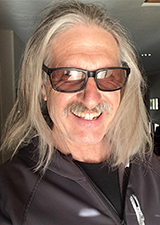
Andrew Bowdle, MD, PhD, FASE
Andrew Bowdle MD, PhD, FASE, is a cardiac anesthesiologist, patient safety expert and clinical pharmacologist. He is Professor of Anesthesiology and Pharmaceutics (Adjunct) and Laura Cheney Professor in Anesthesia Patient Safety at the University of Washington.
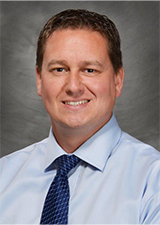
Jonathan Buchholz, MD
Jonathan Buchholz, MD, is an Assistant Professor at the University of Washington Department of Psychiatry & Behavioral Sciences, Program Director of the Addictions Psychiatry Fellowship and Medical Director of Inpatient Psychiatry at the VA Puget Sound.
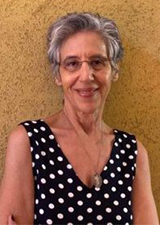
Beatriz Carlini, PhD, MPH
Beatriz Carlini, PhD, MPH, is an Acting Associate Professor at the University of Washington Department of Psychiatry & Behavioral Sciences. She is the Director of the Cannabis Research and Education Program at the Addictions, Drug & Alcohol Institute.
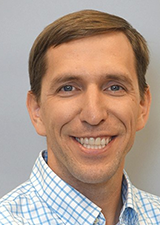
Kevin Hallgren, PhD
Kevin Hallgren, PhD, is an Associate Professor at the University of Washington Department of Psychiatry & Behavioral Sciences. His research interests focus on the assessment and treatment of substance use and mental health disorders.
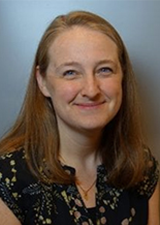
Rebecca Hendrickson, MD, PhD
Rebecca Hendrickson, MD, PhD, is an Assistant Professor at the University of Washington Department of Psychiatry & Behavioral Sciences. Her research group studies the pathophysiology and treatment of PTSD and its complex comorbidities, including addiction and traumatic brain injury.
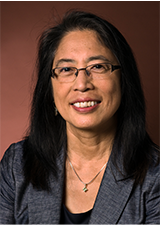
Sheri Mizumori, PhD
Sheri Mizumori, PhD, is a Professor and Chair of the Department of Psychology at the University of Washington. The Mizumori laboratory investigates the neural circuits that mediate cognitive and behavioral flexibility, or the ability to act on perceived changes in a given situation. Of particular interest are the neural mechanisms that underlie the cognitive distortions during opiate withdrawal, and the subsequent restoration of cognitive flexibility following administration of hallucinogens such as psilocybin.
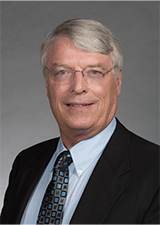
Richard Ries, MD, FAPA, FASM
Richard Ries, MD, FAPA, FASM, is a Professor at the University of Washington Department of Psychiatry & Behavioral Sciences and Clinical Director of Addictions Treatment Services at Harborview Medical Center. He works in psychiatric rehabilitation and recovery services.
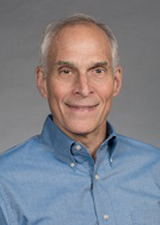
Andrew J. Saxon, MD
Andrew Saxon, MD, is a Professor at the University of Washington Department of Psychiatry & Behavioral Sciences and Director of the Center of Excellence in Substance Addiction Treatment and Education (CESATE) at the VA Puget Sound Health Care System. His expertise is in addiction psychiatry.
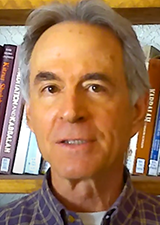
Rick Strassman, MD
The DMT and psilocybin studies by Rick Strassman, MD, at the University of New Mexico in the early 1990s initiated the American renewal of clinical research with psychedelics. He is the author of the best-selling “DMT: The Spirit Molecule,” which chronicles that project.